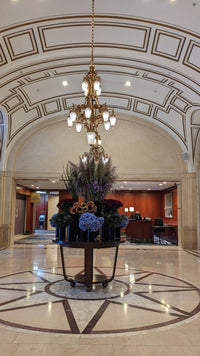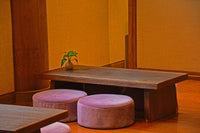When walking into the hotel lobby, you immediately fall under the influence of its scent. The scent is not a coincidence, because fragrance design has long been a powerful tool in hospitality, directly impacting how guests perceive, act, and remember the place. A rightly chosen scent can alter a hotel stay into a precious memory and give a hotel a significant edge. Scent creation is a strategic element that boosts brand loyalty and taps into people’s emotions to establish an unseen bond between a guest and the place.
However, the scent is only one of the several tools that enhance the guest experience. The right blend of colors, materials, textiles, and light boosts the sense of arrival in a specific location. The sense of smell links directly to memory, but all other senses are also crucial in shaping experiences. That’s why many luxury hotel brands go beyond our feelings, appealing to several senses simultaneously.
Bringing Music and Scent Together
The luxury hospitality industry combines music and scents to create an unforgettable sense of arrival for guests. The right music can set up a therapeutic effect and strengthen memories. When connected with scent, it also helps to establish a specific mood in physical surroundings:
-
Create Positive Associations with the Place;
-
Improve the Outcomes of Business Meetings and Events;
-
Enhance Work Environment;
-
Boost Emotional Engagement;
-
Promote Relaxation.
Music can evoke specific emotions, memories, and even physical movement. So, it is crucial to understand what type of music suits your requirements and event, and how you can utilize it to reach your goals. You should also consider your guests’ preferences to create a one-of-a-kind multi-sensory experience.
Music-Scent Pairings in the Hospitality Sector
Smell and sound are the two most emotionally powerful senses. When combined, they should inspire, soothe, energize, or engage. Each type of music correlates with particular scents and evokes feelings of calm, luxury, nostalgia, or excitement. The process of selecting music and scents is linked directly to the target audience. This approach enhances guest experience and reflects the unique character of each hotel.
Here is how hoteliers can benefit from implementing music-sound combinations to create full-sensory experiences.
-
First Impressions Matter: Atmosphere in the Lobbies.
Emotional engagement with the hotel starts from the lobby. Pair signature scents (cedarwood, bergamot, or white tea) with light instrumental music to establish a welcoming tone.
-
Scent and Music Zoning.
Calming music, such as piano or nature sounds, encourages relaxation. Pair it with chamomile or lavender to enhance the atmosphere in wellness areas such as spas, meditation and yoga rooms, pools, etc.
Herbal, vanilla, and coffee scents foster appetite, making them popular “buddies” in dining spaces. Combine them with a matched playlist for the dining time to enhance your visitors’ satisfaction with dining.
To avoid making elevators and corridors sensory blank spots, you’d better maintain a signature scent there. Combine it with some background tracks to nourish your guests’ positive mindsets.
-
Emotional Design in Event Spaces.
Hotels often host various events and occasions, including weddings, business meetings, conferences, and VIP gatherings. Each of these events requires a personalized approach to scenting and sounding. Floral scents perfectly match elegant string music and are ideal for romantic events, while business meetings need motivational music tracks and energizing fragrances (lemon, peppermint, sage, etc).
-
Personalized Music & Scent Experiences.
Upon arrival, hoteliers can offer their clients customized music + scent ambiance packages. Depending on your preferences, you may choose the package for refreshment and entertainment, or vice versa - for relaxation and unwinding. A core feature of modern hotels is the use of smart systems that allow clients to synchronize scent diffusion and playlists at a specific time.
Collaboration with Guests
Visitors tend to bond with the hotel when they feel a connection to music and scents that are important to them. The right choice of fundamental music creates a vibe that leaves a durable impression, leading guests to choose this property again or recommend it to friends and family. To customize the music and scents, hotel employees continuously collect guest feedback and make ongoing changes.
For instance, when guests are tired, hungry, and thirsty after a long flight, it is better to turn on music with a lower tempo so that clients can calm down and align their natural rhythm with the acoustic environment. If you aim to create a lively atmosphere that prompts people to order more beverages, choose more energizing music that aligns with dining experiences. Having different playlists for various times of the day ensures a dynamic experience. Often, hotel staff adjust playlists to their guests’ nationalities, backgrounds, and ages.
Final Thoughts
Multi-sensory hospitality is a highly evolving trend nowadays. All types of senses can make a hotel fully immersive. Although scent and sound are not as apparent as the visual sense and touch, they hit the right notes in creating incentive to return.
Consistency is key in the modern hospitality sector. Want to provide an unforgettable experience? Explore how scent and sound may become a secret weapon to draw and retain clients, and stay in the heart of their memories forever.








